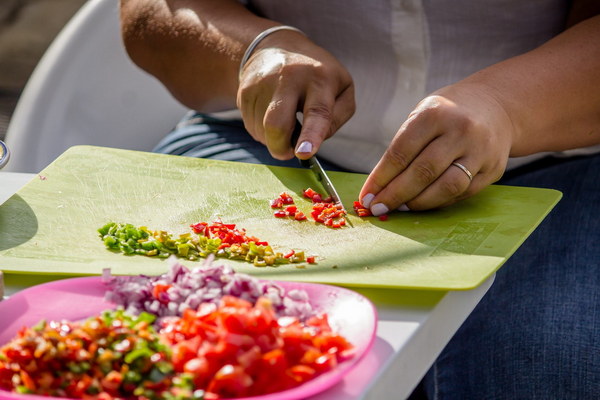Revitalize Your Digestive and Liver Health The Ultimate Guide to the Best Practices
Introduction:
In today's fast-paced world, it's easy to neglect our digestive and liver health. However, maintaining a healthy gut and liver is crucial for overall well-being. This article will delve into the best practices for nurturing your digestive system and liver, providing you with actionable tips to achieve optimal health.
1. Balanced Diet:
A balanced diet is the cornerstone of good digestive and liver health. Here are some essential dietary guidelines:
a. Increase fiber intake: High-fiber foods, such as fruits, vegetables, whole grains, and legumes, promote regular bowel movements and reduce the risk of constipation, diverticulosis, and colorectal cancer. Aim for at least 25 to 30 grams of fiber per day.
b. Include fermented foods: Fermented foods, such as yogurt, kefir, sauerkraut, and kimchi, contain probiotics that support gut health. These beneficial bacteria aid in digestion, improve nutrient absorption, and boost the immune system.
c. Limit processed foods: Processed foods are high in unhealthy fats, sugars, and salt, which can lead to inflammation and damage your gut lining. Minimize the consumption of processed foods and opt for whole, unprocessed ingredients.
d. Consume omega-3 fatty acids: Foods rich in omega-3 fatty acids, such as fish, flaxseeds, and chia seeds, have anti-inflammatory properties and support liver health. Aim to consume at least two servings of fatty fish per week.
2. Hydration:
Staying hydrated is essential for maintaining a healthy digestive system and liver. Drinking plenty of water helps prevent constipation, supports liver function, and aids in the removal of waste products from the body. Aim to drink at least 8 to 10 glasses of water per day.
3. Regular Exercise:
Regular physical activity promotes healthy digestion and enhances liver function. Exercise increases blood flow, which helps deliver nutrients to your organs and remove toxins. Aim for at least 30 minutes of moderate-intensity exercise, such as walking, cycling, or swimming, five days a week.
4. Stress Management:
Chronic stress can negatively impact your digestive and liver health. Here are some stress-relief techniques:
a. Practice mindfulness: Mindfulness meditation and deep-breathing exercises can help reduce stress levels and promote relaxation.
b. Engage in hobbies: Participating in hobbies and activities you enjoy can provide a much-needed break from stress.
c. Get enough sleep: A good night's sleep is essential for stress management. Aim for 7 to 9 hours of quality sleep per night.
5. Avoid Harmful Habits:
Certain habits can harm your digestive and liver health. Here's what to avoid:
a. Excessive alcohol consumption: Alcohol can lead to liver damage and disrupt digestive function. Limit your alcohol intake or avoid it altogether.
b. Smoking: Smoking can increase the risk of liver disease and damage your gut microbiome. Quitting smoking is beneficial for your overall health.

c. Over-the-counter medications: Some over-the-counter medications, such as nonsteroidal anti-inflammatory drugs (NSAIDs), can irritate your digestive system and harm your liver. Use these medications only as directed by your healthcare provider.
Conclusion:
Nurturing your digestive and liver health is essential for overall well-being. By following these best practices, including a balanced diet, staying hydrated, exercising regularly, managing stress, and avoiding harmful habits, you can achieve optimal health. Remember, it's never too late to start taking care of your body, and the benefits will be evident in your overall well-being.









